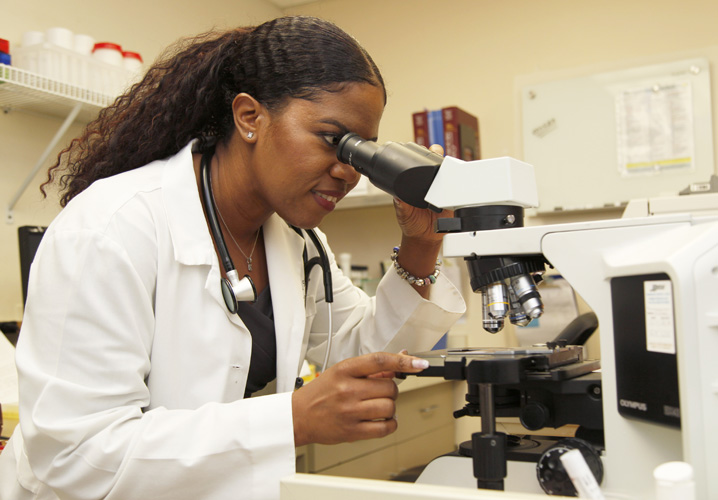
This past February, long before COVID-19 had reached pandemic proportions, Dr. Aisha Thomas, an infectious disease specialist at Sebastian Infectious Disease Care and a five-star-rated physician on both vitals.com and webmd.com, shared her projections on what we could expect from what was then a not-terribly-well-understood disease.
She nailed it.
From the subsequent spread of COVID-19 to the probability of both symptomatic and asymptomatic cases emerging, to the likelihood that an effective vaccine was going to take more time than most people anticipated, her every projection was spot-on.
As we approach midsummer with rising COVID-19 numbers, Vero Beach 32963 checked back with Dr. Thomas to learn what she expects going forward.
“Over the coming months,” says Thomas, “unfortunately, cases will continue to escalate. We need to keep in mind that this virus is naive [or new] to the human population and it is quite an infectious virus. Until we reach ‘herd immunity’” – resistance to the spread of a contagious disease that only happens if a sufficiently high proportion of individuals have become immune to that disease through having it or vaccination – infections will continue.
Then the conversation moves on to testing.
While Thomas readily admits she wishes all 330 million Americans could be tested, she points out there just aren’t that many tests available.
As for the tests themselves, she notes that some are better than others.
According to Thomas, “the most reliable test for active infections is the PCR or ‘polymerase chain reaction’ tests. Those tests detect replicating viral particles.” At the same time, she warns, they “can miss some early cases leading to a false negative result.”
There are also what’s known as IgG antibody or Immunoglobulin G tests, and IgM or Immunoglobulin M tests. In addition, “there are antigen tests, which are the rapid tests that detect some viral particles, but they are the most unreliable.”
Her best advice? It’s the same as it was in February.
“Stay safe,” she says bluntly. That includes wearing masks, eye protection and staying home if you are immunosuppressed.
“I have personally observed,” Thomas says, “that diabetics do poorly” when they are exposed to this virus.
Hand washing, avoiding crowds whenever possible, and wiping down your groceries or Amazon deliveries with Clorox wipes are also on her list of precautions people should consider.
And, she adds, not all masks are created equal.
“Depending on the weave of the fabric,” Thomas explains, “cloth masks may be helpful to prevent droplet spread of coronavirus within 6 feet. They are not 100 percent [effective] but they are far better than nothing.
“Medical-grade or surgical masks may have a much finer weave and can protect against viral particles greater than 5 microns,” which is a mere 0.00019685th of an inch.
The top medical-grade N-95 masks, she says, can protect against airborne viral particles that are less than 5 microns, but they are expensive and still not readily available to the public and are probably overkill for weekly visits to the grocery store provided you’re able to self-distance.
Looking for an alternative? Plastic face shields offer another means of deterring the COVID-19 virus that some might find easier to tolerate, according to Dr. Amesh Adalja, a senior scholar with the Johns Hopkins Center for Health Security in Baltimore.
As medicalxpress.com says, “masks protect others around you from the germs you are carrying. Face shields do the opposite, protecting you from being infected by the people around you.”
A recent editorial in the Journal of the American Medical Association states “face shields have been shown to reduce viral exposure by 96 percent when worn within 18 inches of a cough and by 92 percent at the currently recommended six feet of social distancing,” and they protect your eyes, which could be important given that other viruses including measles and adenoviruses are known to infect people through their eyes.
Finally, Thomas adds that while many anti-bacterial cleaning products are now being touted to kill the virus in your home, COVID-19 is not caused by bacteria. “At this time,” she concludes, “bleach products are known to kill viruses and I would stick with those” for cleaning.
Dr. Aisha Thomas is at Sebastian Infectious Disease Care at 7955 Bay Street, Suite 2 in Sebastian. She is affiliated with the Cleveland Clinic Indian River Hospital and the Sebastian River Medical Center. The phone number is 772-388-9155.



